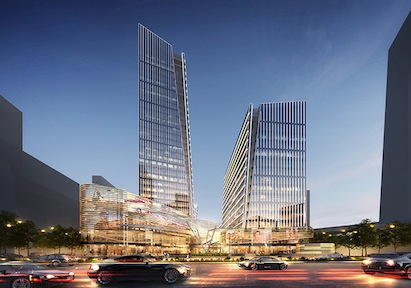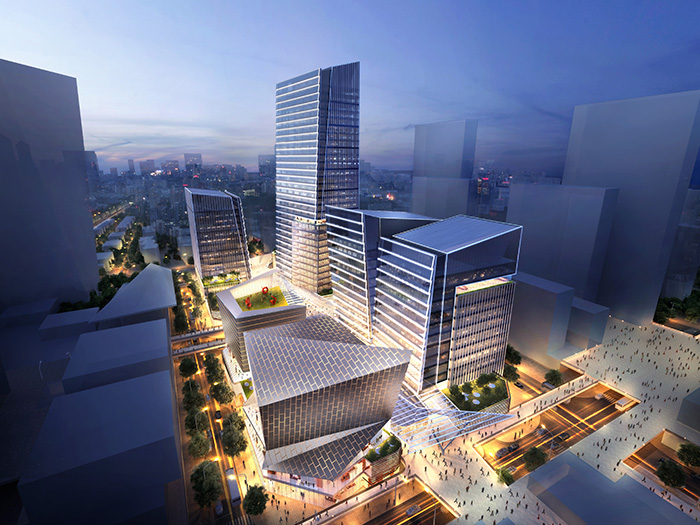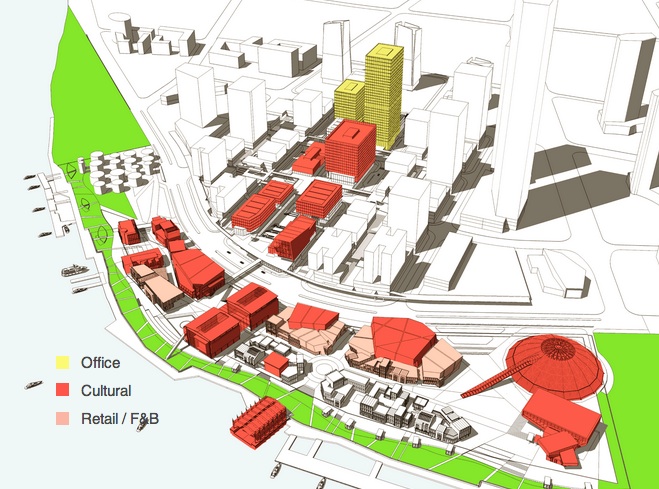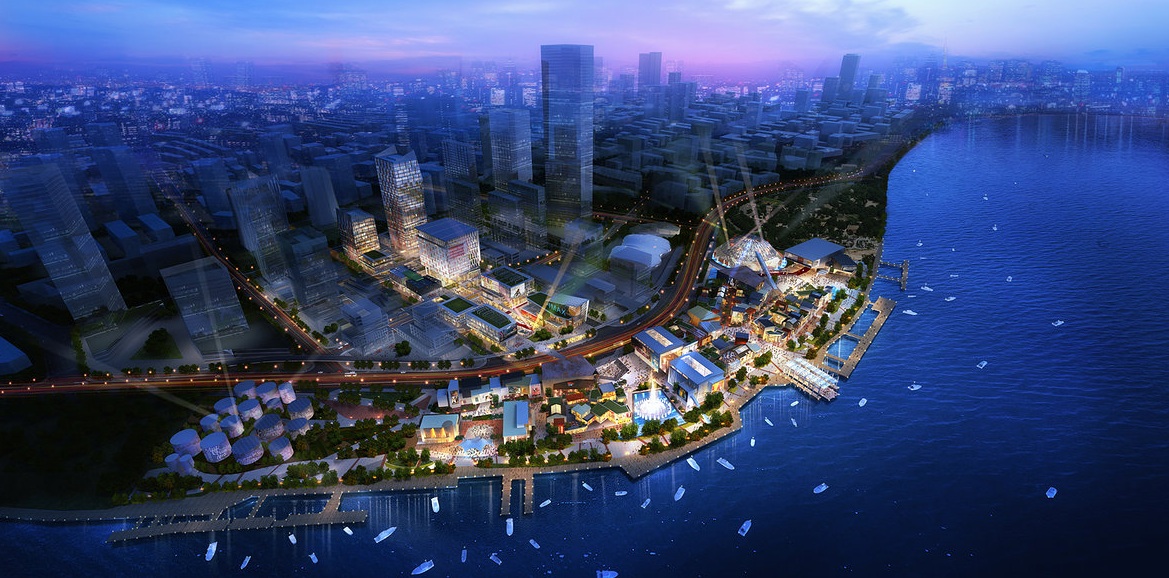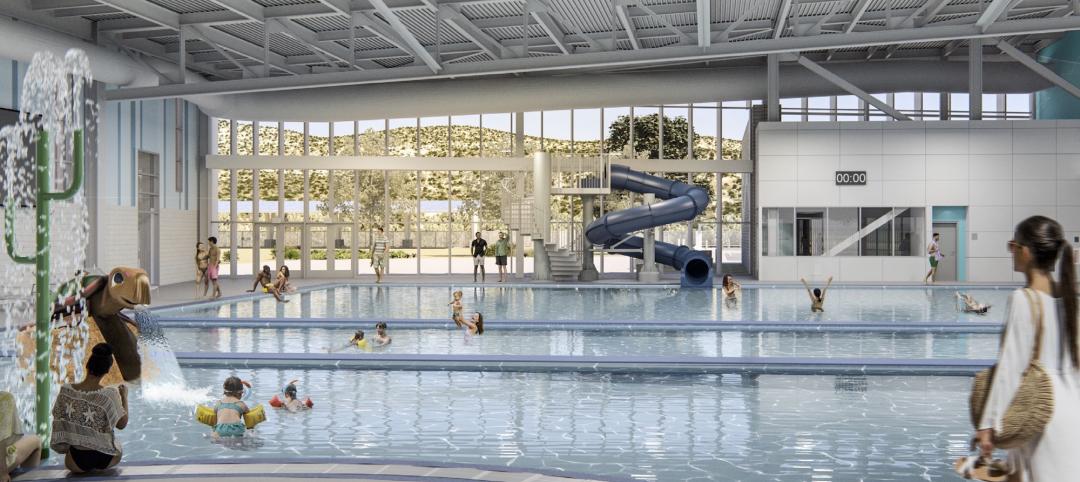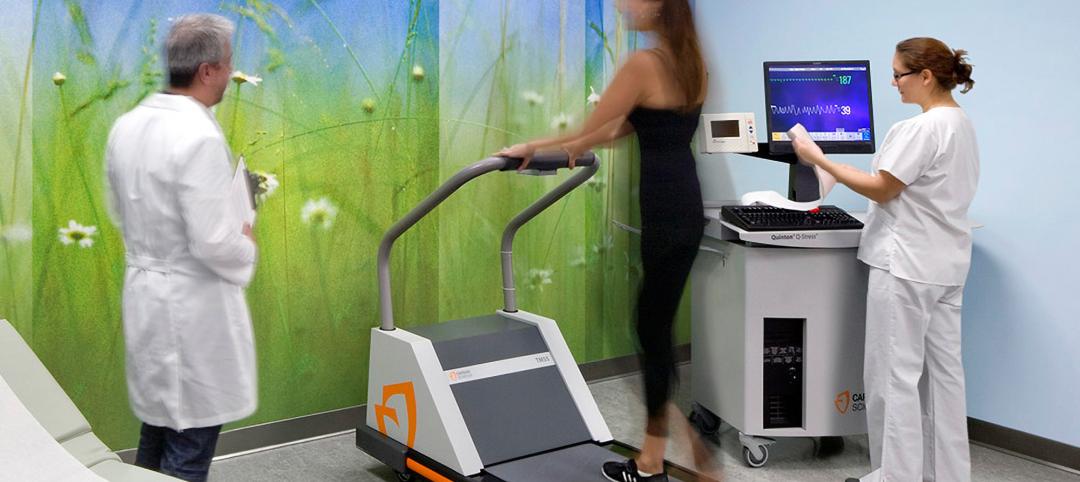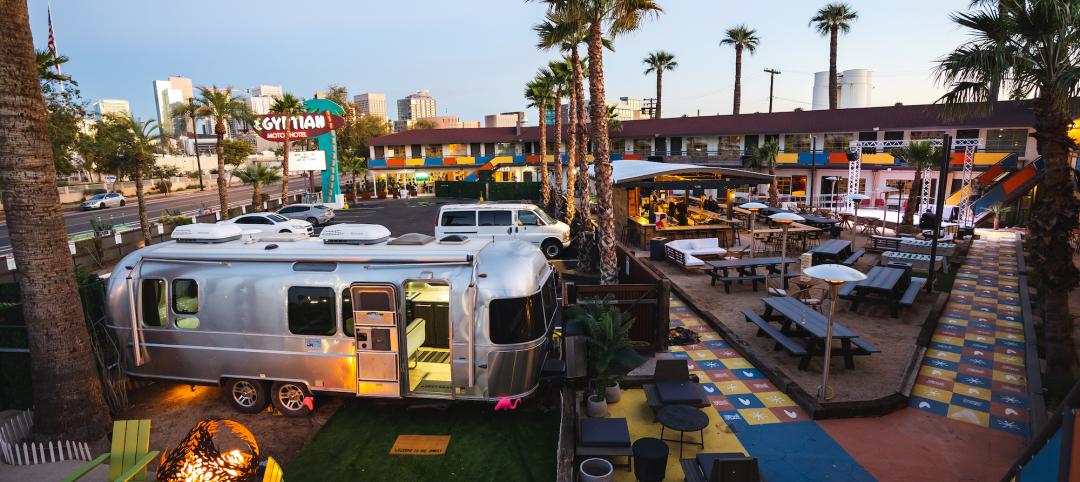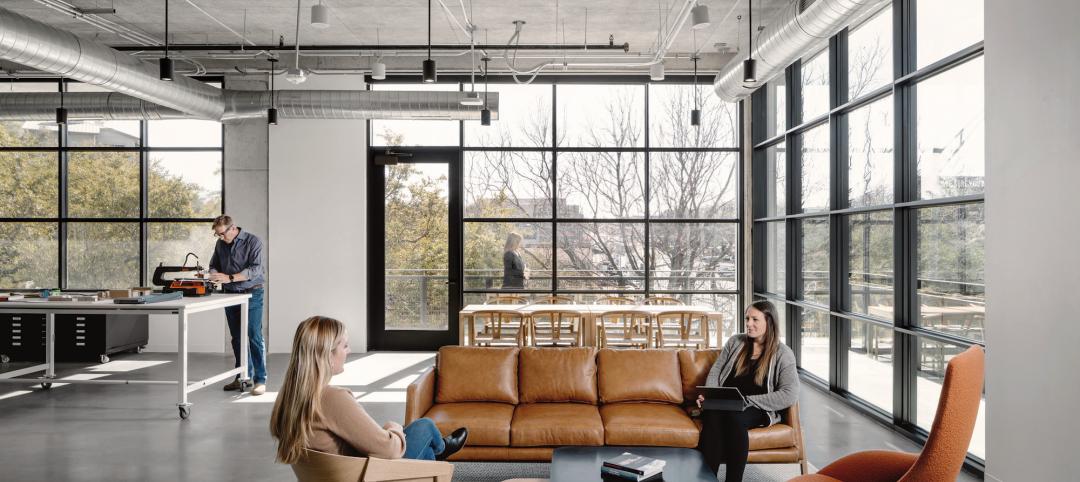International architecture firm Kohn Pedersen Fox Associates (KPF) is pleased to unveil designs for DreamWorks Asia Headquarters, Oriental Dreamworks and creative offices in the new Shanghai DreamCenter, which constitutes one of the most exciting projects in China.
Located along the riverside in Xuhui District, the 463,000-square-meter DreamCenter is an integrated cultural and lifestyle landmark that will feature performing arts spaces, creative media spaces, black box and imax theaters, as well as world-class entertainment, fashionable retail areas and premium restaurants and bars.
“Together with the West Bund Media Port, this will become the world’s third great urban center for entertainment and arts alongside New York’s Broadway and London’s West End,” said DreamWorks Animation CEO Jeffrey Katzenberg. With offices on New York’s 42nd Street and in London’s Covent Garden, KPF is quite literally ‘in’ show business and has come to know what makes such creative capitals tick. In the words of KPF Principal Paul Katz, “We also know first-hand the value of locating in such creative cores, for our process, our staff, and our work as architects.”
A collaboration between Hong Kong Lan Kwai Fong Group, DreamWorks Animation and Shanghai China Media Capital, the DreamCenter is the flagship project of Shanghai’s West Bund Media Port, a large-scale development focused on creative and digital media, technology, and cultural industries.
Katz commented, “We’ve watched Shanghai develop into a global city. And now, three visionaries, three of the most influential shapers of global culture in the 21st century are coming together to create its creative hub: Jeffrey Katzenberg, who heads one of the most influential studios in the industry; Allan Zeman, who has made such a huge contribution to Hong Kong, including the development of Lan Kwai Fong in HK and now China, which transformed the culture of public space and demonstrated a new respect for international lifestyle and world-class entertainment; and Li Ruigang, the visionary who has punctuated the evolution of China’s media and entertainment industry. In 20 years, Shanghai has transformed itself from an agrarian-based economy to one of the leading post-industrial economies in Asia. The DreamCenter project will further define Shanghai’s role as a global meeting-place for creative industry, technology, entertainment, and culture.”
Through the revitalization of the hundred-year-old former cement factory and other industrial artifacts into iconic creative live performance venues and F&B facilities, DreamCenter blends together the site’s industrial and cultural history with modern architecture, offering an unseen experience for the people of Shanghai and international tourists.
KPF’s two-block design represents the creative heart of the master plan—and its largest district. The eastern block is home to a pair of creative office towers, a theater building and arts building, whose open-air rooftop features a sculpture garden. The western block features a pair of towers (DreamCenter’s tallest), which angle slightly as they rise above this space, framing the views westward towards the DreamCenter and Huangpu Riverfront and creating “sky canyons” that capture the sky by day and emanate light and activity by night. At the base of the tower, the design includes a direct connection to the Shanghai Metro, a shared retail podium, and an elevated pedestrian walkway lined with shops and restaurants that extends eastward to connect the entire development.
Like KPF’s designs for Roppongi Hills in Tokyo, Hudson Yards in New York, and Covent Garden in London, Shanghai DreamCenter will become the great gathering place for the city, bringing together diverse activities, industries, and cultures, and enabling this energy and streetlife to radiate outwards, activating the city.
Construction of the Shanghai DreamCenter will begin this year and is expected to complete in 2017.
About Kohn Pedersen Fox Associates (KPF)
Kohn Pedersen Fox Associates (KPF) is one of the world’s pre-eminent architecture firms, providing architecture, interior, programming and masterplanning services for clients in both the public and private sectors. Operating as one firm with six global offices, KPF is led by 24 Principals and 27 Directors. The firm’s 600+ staff members come from 43 different countries, speak more than 30 languages and include over 80 LEED accredited professionals.
KPF’s diverse portfolio, which features over 70 projects certified or pursuing green building certification, comprises corporate, hospitality, residential, academic, civic, transportation and mixed-use projects located in more than 35 countries. The firm’s recent work includes the Abu Dhabi International Airport, the Shanghai World Financial Center, the International Commerce Centre in Hong Kong, New Songdo City in Korea, the Mandarin Oriental Las Vegas, the RBC Centre and Ritz? Carlton in Toronto, and Heron Tower, Sixty London and Unilever House in London.
Related Stories
Adaptive Reuse | Jul 27, 2023
Number of U.S. adaptive reuse projects jumps to 122,000 from 77,000
The number of adaptive reuse projects in the pipeline grew to a record 122,000 in 2023 from 77,000 registered last year, according to RentCafe’s annual Adaptive Reuse Report. Of the 122,000 apartments currently undergoing conversion, 45,000 are the result of office repurposing, representing 37% of the total, followed by hotels (23% of future projects).
Hotel Facilities | Jul 26, 2023
Hospitality building construction costs for 2023
Data from Gordian breaks down the average cost per square foot for 15-story hotels, restaurants, fast food restaurants, and movie theaters across 10 U.S. cities: Boston, Chicago, Las Vegas, Los Angeles, Miami, New Orleans, New York, Phoenix, Seattle, and Washington, D.C.
Sustainability | Jul 26, 2023
Carbon Neutrality at HKS, with Rand Ekman, Chief Sustainability Officer
Rand Ekman, Chief Sustainability Officer at HKS Inc., discusses the firm's decarbonization strategy and carbon footprint assessment.
Sports and Recreational Facilities | Jul 26, 2023
10 ways public aquatic centers and recreation centers benefit community health
A new report from HMC Architects explores the critical role aquatic centers and recreation centers play in society and how they can make a lasting, positive impact on the people they serve.
Multifamily Housing | Jul 25, 2023
San Francisco seeks proposals for adaptive reuse of underutilized downtown office buildings
The City of San Francisco released a Request For Interest to identify office building conversions that city officials could help expedite with zoning changes, regulatory measures, and financial incentives.
Designers | Jul 25, 2023
The latest 'five in focus' healthcare interior design trends
HMC Architects’ Five in Focus blog series explores the latest trends, ideas, and innovations shaping the future of healthcare design.
Urban Planning | Jul 24, 2023
New York’s new ‘czar of public space’ ramps up pedestrian and bike-friendly projects
Having made considerable strides to make streets more accessible to pedestrians and bikers in recent years, New York City is continuing to build on that momentum. Ya-Ting Liu, the city’s first public realm officer, is shepherding $375 million in funding earmarked for projects intended to make the city more environmentally friendly and boost quality of life.
Market Data | Jul 24, 2023
Leading economists call for 2% increase in building construction spending in 2024
Following a 19.7% surge in spending for commercial, institutional, and industrial buildings in 2023, leading construction industry economists expect spending growth to come back to earth in 2024, according to the July 2023 AIA Consensus Construction Forecast Panel.
Hotel Facilities | Jul 21, 2023
In Phoenix, a former motel transforms into a boutique hotel with a midcentury vibe
The Egyptian Motor Hotel’s 48 guest rooms come with midcentury furnishings ranging from egg chairs to Bluetooth speakers that look like Marshall amplifiers.
Office Buildings | Jul 20, 2023
The co-worker as the new office amenity
Incentivizing, rather than mandating the return to the office, is the key to bringing back happy employees that want to work from the office. Spaces that are designed and curated for human-centric experiences will attract employees back into the workplace, and in turn, make office buildings thrive once again. Perkins&Will’s Wyatt Frantom offers a macro to micro view of the office market and the impact of employees on the future of work.


